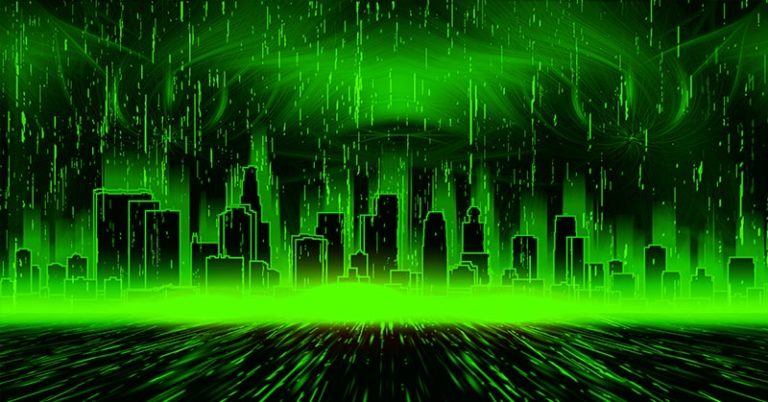One of the most famous questions still has everyone guessing even to this day, are we living in a simulation? Watching movies like The Matrix is a great example of life in a simulation. This concept might seem like a fantasy. To some this may actually be the reality that we are living in. The idea that the existence of humanity is nothing more than a simulation hasn’t been an easy theory to prove. However, a multitude of scientists, philosophers, researchers, physicists, and technologists have attempted to solve this mystery of existence for years.
Several Western and Eastern philosophical traditions are deeply rooted into this theory. Including Plato’s Allegory of the Cave and other famous philosophers such as Zhuang Zhuo’s Butterfly Dream. Mankind has interpreted reality in a menagerie of ways. We continue to seek out the truth about our existence whether we live in a simulation or not. (1) (2)
Who Says We’re Living In A Simulation?
In 2003, Nick Bostrom of the University of Oxford, curated a seminal paper in which he explains his ideals and theories. Bostrom argues that there are some conditions in order for life in a simulation. As a result, he gives the world his problematic Trilemma for this popular argument.
Bostrom theorizes simulated life cannot be done if society is already on the brink of extinction or is already extinct. There is no possible way for further technological development. Secondly, if humans do evolve, we are unlikely going to be interested in replicating our ancestors past through simulation. Lastly, the probability of people living in a simulation is close to one. This means that mankind has been living in a simulation almost certainly this entire time. These three elements are what Bostrom’s Trilemma consists of and what everyone is trying to prove or disprove. (3)
Think of society as one big super computer and we are just players in a video game. It puts a lot into perspective for mankind. Video games render scenes and action sequences. This is based on what the player can and can’t see in that moment of time. Computers require a certain level of clever programming. So that its possible it can minimize the amount of computation in order to produce a virtual world and existence. So, does humanity have this kind of super computer power that would somehow keep humans living in a simulation?
Who Else Says We’re In A Simulation?
Elon Musk, a famously known entrepreneur of both cars and space, said in a 2016 conference, “The odds that we are in base reality is one in billions,” in which David Kipping, Astronomer at Columbia University, responds to Musk’s statement, “Musk is right if you assume [propositions] one and two of the trilemma are false. How can you assume that?” (4) (5)
Kipping dives into Bostrom’s first two propositions by placing them in the same light. He claims that both of these propositions would yield the same outcome. Which is that mankind is not living in a simulation. “You just assign a prior probability to each of these models. We just assume the principle of indifference, which is the default assumption when you don’t have any data or leanings either way. Then you are only left with the simulation hypothesis. The day we invent that technology, it flips the odds from a little bit better than 50-50 that we are real to almost certainly we are not real, according to these calculations.” Kipping says. (3) (5)
Ultimately, Kipping’s analysis contests Musk’s statement. That with current evidence, Musk is wrong by saying that there’s a one-in-a-billion odds against mankind living in a simulation. Bostrom agrees with Kipping’s analysis.
“This does not conflict with the simulation argument, which only asserts something about the disjunction,” Bostrom giving additional thought on the matter. Based on the idea that one of the propositions of the trilemma is most likely true. (3) (5)
Do You Think We Are Living In A Simulation?
Bostrom believes it’s problematic that Kipping’s chooses to attach equal prior probabilities to the physical and simulation hypothesis. “The invocation of the principle of indifference here is rather shaky. One could equally well invoke it over my original three alternatives, which would then give them one-third chance each. Or one could carve up the possibility of space in some other manner and get any result one wishes.” (3) (5)
What it really boils down to is if a super computer is capable of keeping mankind in simulations. That has enough power to withstand this level of existence. However, if there was one, there wouldn’t be any discernable way for you to know you’re living in a simulation. The computer would simply be able to fabricate anything into reality to the level of realism that you wanted it to be.
Imagine if a computer had this potential. Then it would need an endless font of coding, information, and rendering. In order to maintain a constant uninterrupted existence for all life to subsist off of. Would you be able to tell if you’re in a simulation or not?
Read More: Some Of The Smartest People In The World Think We Are Living In A Simulated Reality
- “The Allegory of the Cave“. Stanford University
- “‘Zhuangzi and his butterfly dream: the etymology of meng.” The China Story. Jingjing Chen.
- “Are We Living in a Computer Simulation?” Oxford Academic. Nick Bostrom. April 28, 2003.
- “Is life a video game? | Elon Musk | Code Conference 2016” YouTube. June 1, 2016
- “Do We Live in a Simulation? Chances Are about 50–50.” Scientific American. Anil Ananthaswamy. October 13, 2020

